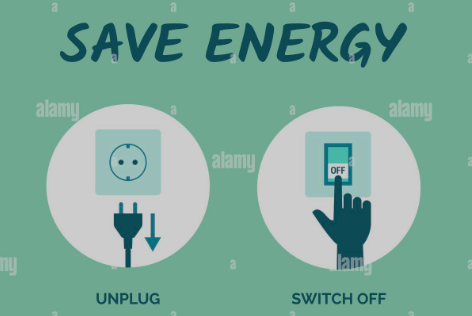Best Consumer Awareness About Energy Consumption

In a world where energy consumption is a critical factor in addressing environmental concerns and ensuring sustainable living, consumer awareness plays a pivotal role. This article delves into the various aspects of fostering the best consumer awareness about energy consumption, exploring its significance and offering practical insights.
Understanding Energy Consumption
Defining Energy Consumption
Before delving into awareness, it is crucial to comprehend what energy consumption entails. This section breaks down the concept, exploring the types of energy consumed and their impact on the environment.
Sources of Energy
An exploration of the diverse sources of energy, from fossil fuels to renewable alternatives, sets the stage for understanding the environmental implications of different choices. This knowledge forms the basis for informed consumer decisions.
Environmental Impact of Energy Consumption
Carbon Footprint Awareness
Highlighting the carbon footprint associated with energy consumption creates a direct link between individual actions and their impact on the planet. This section emphasizes the need for consumers to be mindful of their choices.
Renewable Energy Advantages
Educating consumers about the benefits of opting for renewable energy sources fosters an appreciation for sustainable alternatives. This includes solar, wind, and hydroelectric power, emphasizing their positive effects on the environment.
Empowering Consumers Through Technology
Smart Home Solutions
Technological advancements offer consumers tools to monitor and control their energy consumption. Smart home devices and energy-efficient appliances empower individuals to make conscious choices in their daily lives.
Energy Tracking Apps
The rise of mobile applications dedicated to tracking energy usage provides consumers with real-time data and insights. These apps encourage responsible energy management, allowing users to identify areas for improvement.
Government Initiatives and Regulations
Policy Impact on Consumer Choices
Examining the role of government policies and regulations sheds light on how they influence consumer behavior. Incentives for renewable energy adoption and penalties for excessive consumption shape the decision-making landscape.
Energy Efficiency Standards
Exploring the establishment and enforcement of energy efficiency standards reinforces the importance of adhering to guidelines. Consumers are more likely to make informed choices when they understand the benchmarks set by regulatory bodies.
Educational Campaigns and Outreach Programs
Community Engagement
Creating awareness extends beyond individual efforts; community-based initiatives and outreach programs play a crucial role. This section explores the impact of educational campaigns in schools, workplaces, and local communities.
Media’s Role in Spreading Awareness
The influence of media in shaping public opinion cannot be overstated. Analyzing how various forms of media contribute to disseminating information about energy consumption enhances our understanding of their role in promoting awareness.
Challenges and Solutions
Overcoming Apathy and Inertia
Consumer apathy and inertia often impede progress in adopting sustainable practices. This section delves into the challenges of motivating behavioral change and presents effective strategies for overcoming resistance.
Financial Considerations
The economic aspect of energy consumption cannot be ignored. Examining the financial implications of sustainable choices and addressing potential barriers helps consumers make decisions that align with both environmental and budgetary concerns.
The Future of Consumer Awareness
Technological Innovations on the Horizon
Looking ahead, this section explores emerging technologies and innovations set to revolutionize energy consumption. From advancements in renewable energy to breakthroughs in energy storage, understanding the future landscape prepares consumers for upcoming changes.
Global Collaboration for Sustainable Living
Highlighting the interconnectedness of global efforts, this final section emphasizes the need for collaborative action. Consumers, governments, and businesses must work together to create a sustainable future where energy awareness is a shared responsibility.
Conclusion
In conclusion, fostering the best consumer awareness about energy consumption requires a multifaceted approach. From understanding the basics of energy sources to leveraging technology and embracing government initiatives, informed consumers play a pivotal role in shaping a sustainable future. By addressing challenges, promoting education, and envisioning a collective effort, we pave the way for a world where energy awareness is not just a choice but a shared commitment to environmental stewardship.




